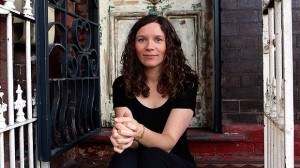
Geraldine Hewitt. Photo: Dallas Kilponen
A decision on whether to give people conceived from sperm donors clues about their genetic origin on a separate page of their birth certificate has been shelved by the NSW Premier Barry O’Farrell.
Donor-conception support groups said people had a right to know where they came from, and they were disappointed Mr O’Farrell had written to Parliament’s law and safety committee, which strongly supported the changes, to say the government would wait for the findings of a raft of other health and registry reviews before making any decision.
Caroline Lorbach, who has three donor-conceived children, said the government had put the issue into the ”too hard” basket because it didn’t want to spend money implementing the reforms.
”Donor-conceived people are the only group around that are actually denied information about their identity that is in most cases available and known by someone,” said Mrs Lorbach, who runs the Donor Conception Support Group of Australia. She said tens of thousands of children are affected.
”The same arguments were put forward about adoptions, but governments around Australia eventually decided it wasn’t in the best interests of the adoptees.”
She drew a parallel with recent government apologies for the past treatment of adopted children. ”My question to government is: How long before you have to apologise?”
The parliamentary committee in October found the rights of donor-conceived people to understand their identity ”were of a greater value” than the privacy rights of sperm donors or families who wanted to hide the sperm donation.
It recommended families could be protected from being ”outed” by only allowing adults to receive a separate page of their birth certificate, with more information about their birth. They could then apply to the donor register for details.
But the state government has said it won’t consider the issue until the completion of a separate inquiry into whether donor-conceived people should be able to obtain details kept about anonymous sperm donations made prior to 2010. This inquiry, which will hold hearings on Monday, is also examining whether counselling services should be offered to people accessing donor information.
The Victorian government is also stalling on the issue, after a committee recommended all donor-conceived people should have access to their donor records, regardless of when the donation was made.
Concord Hospital’s director of andrology, Professor David Handelsman, who was involved in the hospital’s anonymous sperm donation program for decades, is strongly opposed to any breaches of the men’s privacy.
He describes the sperm donor as the ”undefended minority” in the debate, and has urged the government not to ”forcibly out” men who donated altruistically before 2010. Anonymous sperm donation became illegal in NSW in 2010.
Professor Handelsman has told the committee the government should instead do more to promote the voluntary register, which was designed to encourage sperm donors to come forward.
Miranda Montrone, a psychologist who has worked with donors, is also against retrospective legislation, but wants these pre-2010 records kept safe so that in 50 years time, for example, future descendants could access the information.
‘They keep better records for dogs, cats and cattle’
Geraldine Hewitt was five when she was told by her parents that she was donor conceived. Now 30, Ms Hewitt has been unable to find out anything about the donor because the hospital destroyed her records.
Only one in 10 donor-conceived children are told the truth, she says. She believes this is why it is important for birth certificates to carry clues, so that when they reach adulthood, information vital to their identity and medical history can be traced.
”My birth certificate would look like anyone else’s, with no asterisk or addendum to indicate there is something more,” Ms Hewitt says.
”Its really important. I’ve got a chronic health condition that no one in my family has and it has a genetic origin. They keep better records for dogs, cats and cattle.”
Her young brother and sister were also conceived from donor sperm, but they know the donor and get birthday cards and travel advice from the men, whose wives are supportive of the contact.
She will tell politicians on Monday the information gap for donor-conceived children will have long-term generational consequences. ”I’m one of four live births. I have a half brother and two half sisters … I want to know if my brother was born in May 1983, for example, so I won’t date anyone born in that year.”
She believes DNA testing should be made available free for donor-conceived children, because the records have been so badly mismanaged.
Sharon Hunt, president of Solo Mums by Choice, has an eight-year-old son who was conceived by an anonymous donor. Ms Hunt says that at the time she was grateful to the donor, and respected his privacy.
”But when you have a little person in front of you, already wanting more information at the age of eight, it’s no longer about you,” she says. ”That desire to know more about the other half of your background just grows.”
Stay Informed. It’s simple, free & convenient!